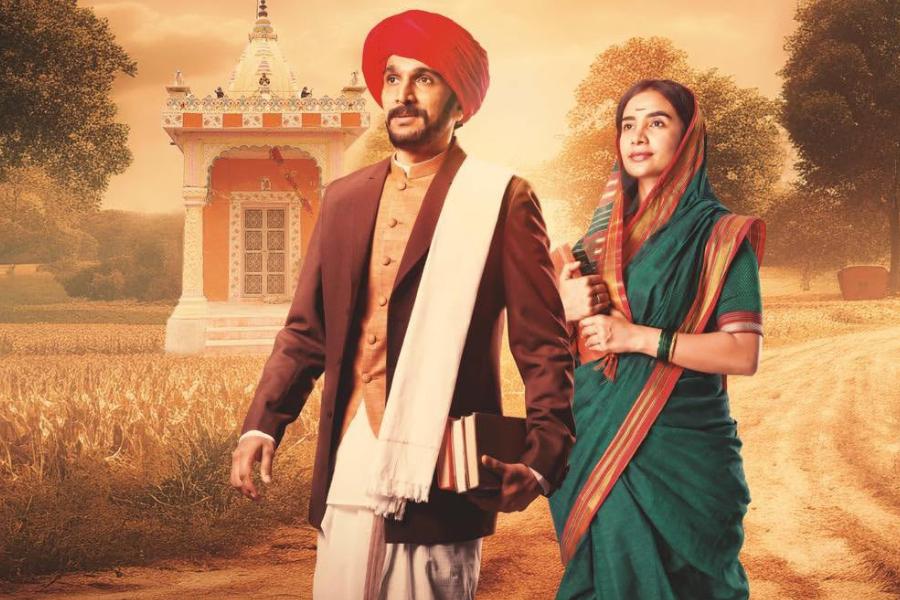Filmmaker Ananth Mahadevan believes there is no need to be afraid of backlash over a historical film if the makers have been sincere and honest with their research — a view he stands by while grappling with Central Board of Film Certification (CBFC) censorship of his upcoming historical drama Phule.
“They have been recorded for posterity in history books, research papers and other books. So, there is no way that anyone can prove the film wrong,” said Mahadevan in a free-wheeling chat with The Telegraph Online.
“So, when you are not wrong, why do you have to worry about any backlash? I mean, if we were to live in that kind of fear, we would never be able to do something for society,” the 64-year-old filmmaker added.
Mahadevan, who received critical acclaim for his last project The Storyteller, brings the story of social reformers Jyotirao Phule and Savitribai Phule to screen through Phule, a film he describes as an “unembellished” portrayal of history.
Starring Pratik Gandhi and Patralekhaa, Phule aims to turn the spotlight on India’s first social revolutionaries — the Phules — whose legacy of fighting caste discrimination, promoting education for girls, and empowering widows remains profoundly relevant today, said the filmmaker.
The film, however, landed in the crosshairs of a certain section of society for the alleged incorrect portrayal of Brahmins in it.
Mahadevan said he read over ten books in Marathi, Hindi, and English for his research and then started working on the script for Phule, which makes the content of his film factually correct.
CBFC censorship for Phule came close on the heels of edits made to Mohanlal’s L2: Empuraan over references to the 2002 Gujarat riots. Before Empuraan, Vicky Kaushal’s Chhaava landed in controversy over a dance sequence.
“If you are going to be afraid of portraying the truth, then what kind of person are you? Then you are not a committed filmmaker, you are not a filmmaker who can claim social relevance and you are not an honest filmmaker,” Mahadevan said.
Mahadevan sees the Phules as India’s “first power couple” — not just in terms of chronology, but also in their impact. “They thought of the foundation and the future of India. Issues they addressed in the mid-1800s still exist today, even if we’ve come a long way. So I felt this story had to be told now.”
Versatility and spontaneity of actor Pratik Gandhi landed him the role in Phule, said Mahadevan, adding that the actor also shares a remarkable resemblance to Jyotirao Phule.
“He had this ability to, you know, own the character that he was playing. And besides, he also looks remarkably like Jyotirao Phule. If you see the sketches of Jyotiba Phule, we don't have any photographs available, but there are a lot of sketches of Jyotiba Phule. And when we did the look test on him, he looked exactly as if the sketch had come alive,” Mahadevan said.
Patralekhaa, on the other hand, was chosen to play Savitribai for her intense performance in CityLights and her relatively fresh on-screen presence, which Mahadevan felt would allow the audience to connect with the character, not the actor.
Phule follows the story of social reformers Jyotirao and Savitribai Phule, who played a pivotal role in challenging caste and gender-based discrimination.
Their visionary efforts led to the establishment of the country's first girls' school in Pune in 1848, a landmark achievement that sparked a revolutionary transformation in education and paved the way for significant social reform.
Phule was shot in real locations of Pune, Satara and Kolhapur featuring 1800s-era architecture — a decision aimed at enhancing authenticity and bringing Phule's revolutionary journey vividly to life.
Co-produced by Dancing Shiva Films and Kingsmen Productions, Phule was previously slated to hit screens on April 11. The release date, however, has been pushed in the wake of the controversy and CBFC censorship.










